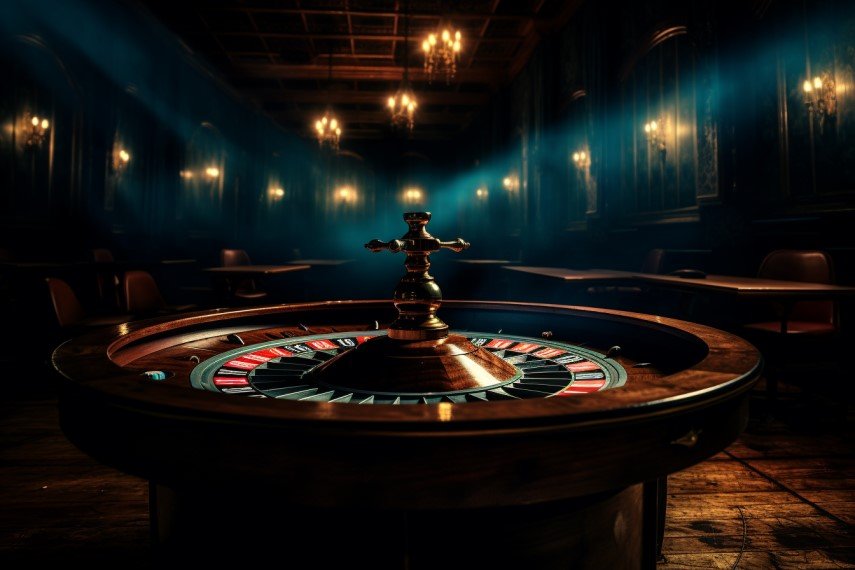Choice Versus Chance
Image from Midjourney
Think of a successful person. Has the person's success come from making good choices or just being lucky? I expect that most of you will confirm that, overwhelmingly, success seems to follow the making of good choices.
Former United States Secretary of State William Jennings Bryan said, "Destiny is not a matter of chance; it is a matter of choice."
Some people appear to be extremely lucky. Their success seems to come from chance situations. Movie stars and superstar musicians will sometimes share that they feel like they are lucky.
Even with the people who appear to be lucky, if you look deep enough at their behavior, most of them also make positive life choices, such as having a work ethic that leads to repeatable creative success. To a very great degree, successful people become successful because of the choices that they make. Luck always runs out.
We make hundreds of decisions each day. A majority of the choices we make are easy and come with no significant consequence. You open the refrigerator door and choose what food to eat. Very little thought has to go into the outcome of your choice. What about the more critical decisions?
When faced with tough decisions, how can you become an expert at making good choices? I believe one of the decision-making skills you must embrace is to consider all of the possible outcomes before the decision. Highly effective people think before choosing.
Decisions about employment opportunities can fall into the category of challenging decisions. If you receive a new job offer, you should look at the many variables associated with your decision to accept or decline. You have to think about the future and predict what the decision will do. Your decision might include unintended consequences. When faced with a new job offer, here are just a few questions that might help uncover unintended consequences:
Will the position provide learning opportunities supporting career goals?
Is the position a lateral move or a promotion?
If the position requires me to move, am I willing to go through this change?
How will family members be impacted?
There will be unintended consequences with a challenging decision. The tough choices require looking at precisely what will happen when you make the decision. What will be the unintended consequences? Decisions can set off a chain reaction of other events or situations that you were not expecting. A person who thinks first will have much more control over the future than someone who depends on chance.
Gamblers depend on chance. In the United States, we have a lot of gamblers that believe in luck. Researchers at the Clinical and Research Institute at the University of Buffalo say 750,000 youth in the 14-21 age group are addicted to gambling in America. They must not be aware that the gambling organizations, bookies, and oddsmakers are the only winners. Over time, the gamblers will not come out financially on top. They depend on chance. The gambling organizations would not stay in business if they were not sure of profit. For example, midway through the 2021 season, the National Football League (NFL) has already earned an estimated $27 billion on betting. They are the winners, and the gamblers are the losers.
Luck or chance will not deliver results in the long term. Making good choices based on looking closely at possible outcomes and unintended consequences provides an opportunity for successful decision-making. Making good choices and occasional luck are a great combination, but nothing compares to consistently making good choices.
Martial Arts Perspective:
We must learn to make good choices in the martial arts training facility (dojang) and other times in our life. For example, safety is an essential aspect of training. You must choose to be safe with your training partners. If you decide to be too aggressive, you may injure your training partners. No one will want to train with you, and there may be other consequences from the instructors.
Similarly, if you make bad choices outside of the training facility, people will notice. Wise people will avoid you – they will want to stay away from a person who chooses reckless behavior. There might be other consequences that follow poor decision-making.
By training in martial arts, you can learn the importance of thinking about your actions and making good choices.
Questions for Discussion:
Describe a time you made a decision that had unintentional consequences. What did you learn from the experience?
How can you avoid unintentional consequences in the future when you make choices?
What would you tell a friend about the connection between a decision and possible outcomes?
Why do you think so many successful people would rather make good choices than depend on chance?
What motivation is there to become an expert at decision-making?
When you have to make highly challenging decisions, how do you determine the people who can help you make the decision?
Why is it better to think about challenging decisions before immediately making a choice?
How would you compare chance versus choice?
The image in this post is an image from Midjourney. We have a Midjourney license agreement to use images and design tools from the Midjourney site.
